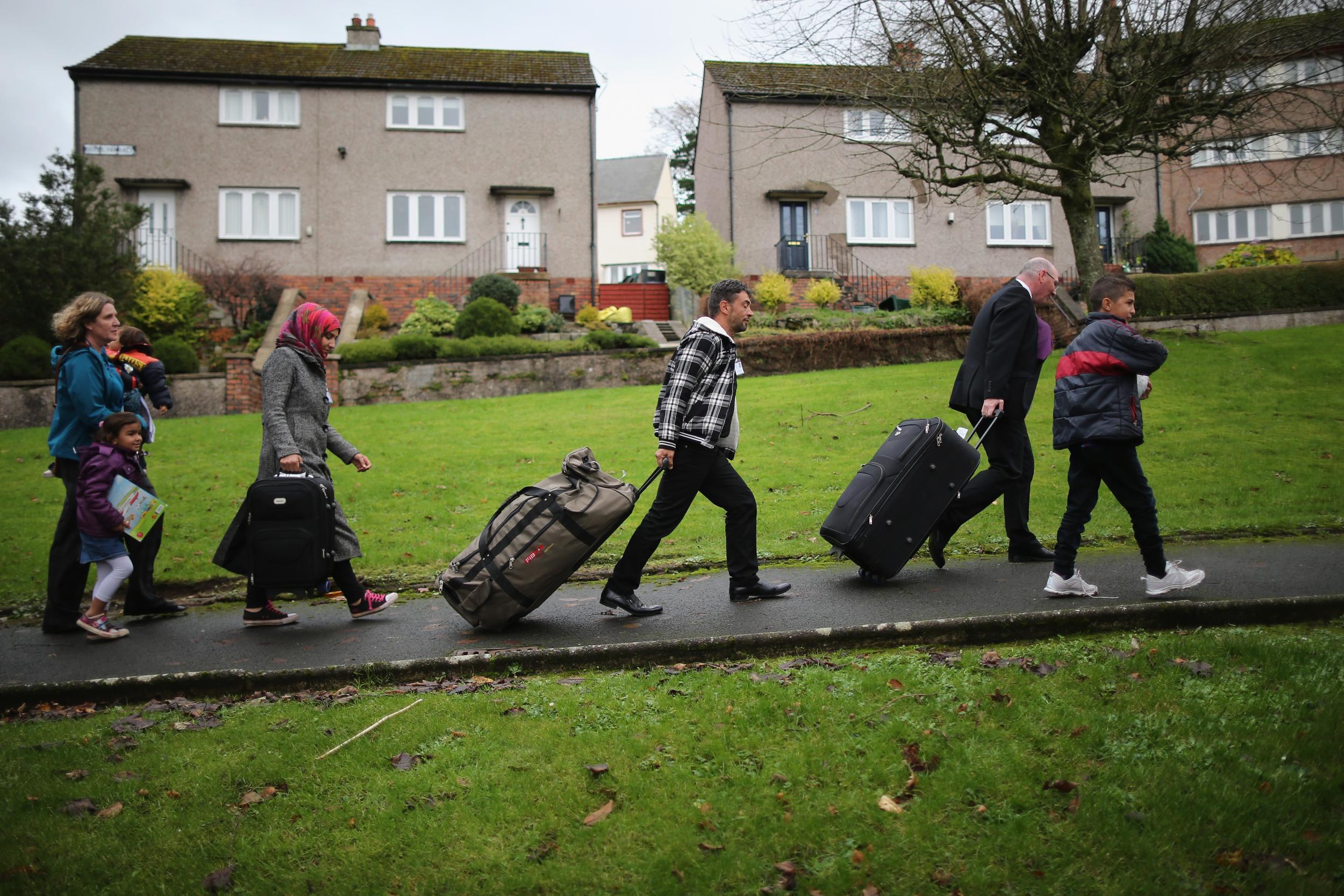UK to resettle 5,000 more refugees in expanded scheme
Government extends scheme beyond 2020 into countries outside Middle East and North Africa

Your support helps us to tell the story
From reproductive rights to climate change to Big Tech, The Independent is on the ground when the story is developing. Whether it's investigating the financials of Elon Musk's pro-Trump PAC or producing our latest documentary, 'The A Word', which shines a light on the American women fighting for reproductive rights, we know how important it is to parse out the facts from the messaging.
At such a critical moment in US history, we need reporters on the ground. Your donation allows us to keep sending journalists to speak to both sides of the story.
The Independent is trusted by Americans across the entire political spectrum. And unlike many other quality news outlets, we choose not to lock Americans out of our reporting and analysis with paywalls. We believe quality journalism should be available to everyone, paid for by those who can afford it.
Your support makes all the difference.At least 5,000 more refugees will be resettled in the UK under a renewed government initiative.
The Home Office said the “most vulnerable” asylum seekers identified by the United Nations would be transferred from 2020 onwards.
A programme that started in 2015 focused on Syria, but the government will now take refugees from beyond the Middle East and North Africa and provide emergency resettlement where lives are at risk.
The government said that although it had agreed to welcome between 5,000 and 6,000 refugees in 2020-21, the actual number will depend on factors including the amount of suitable accommodation provided by councils.
The home secretary said Britain has resettled more refugees from outside Europe than any other EU state since 2016.
Sajid Javid, who is running to be the next Conservative leader and prime minister, added: “It’s vital we continue to do all we can to help the world’s most vulnerable.
“Under our new scheme, thousands more people fleeing conflict and persecution will have the opportunity to build a new life in the UK.
“I’m proud of the world-leading work we have done in the Middle East and Africa so far – but there is so much more to do.”
The new scheme would consolidate the Vulnerable Persons Resettlement Scheme (VPRS), Vulnerable Children’s Resettlement Scheme and Gateway Protection Programme to provide greater simplicity and “greater consistency”.
The VPRS, which ends next year, was started by David Cameron amid an Independent campaign in 2015 and has so far seen almost 16,000 refugees settled in the UK.
The government said it was on track to deliver on its pledge to have taken 20,000 Syrian refugees by May 2020, and thousands of people had been resettled through other routes.
Rossella Pagliuchi-Lor, UK representative for the UN Refugee Agency (UNHCR), said the programme would see protection offered for people from “wherever the need is most acute”.
She added: “Resettlement is a crucial component of international solidarity for those states bearing the greatest burden and gives refugees the possibility of rebuilding their lives.
“We hope this serves as a signal for other countries to provide more routes to safety for those forced to flee as the international community moves to make the [UNHCR framework] Global Compact on Refugees a reality.”
The process sees the Home Office select vulnerable refugees from a pool identified by the UNHCR, taking into account factors including threat to life, torture and health, before they are relocated to the UK by the International Organisation for Migration and received by local authorities.
The Local Government Association called for the government to follow initial one-year funding with long-term funding in the upcoming spending review.
“Clear links need to be made across all the programmes that resettle asylum seekers, refugee families and children to make sure there is enough funding for all new arrivals building new lives in the UK,” a spokesperson added.
The Refugee Council welcomed the creation of a consolidated scheme but also called for the government to make a long-term commitment beyond 2021.
Chief executive Maurice Wren said: “Day in, day out, we see resettlement’s truly transformative impact – watching a family that’s spent years living in a dangerous refugee camp being given the keys to their new home and being shown around their local area, children who were born during conflict having their first day at school. Not only this, refugees contribute an enormous amount to Britain.”
The government commitment to resettling 5,000 more refugees will be separate to a community sponsorship scheme, which allows groups to directly support asylum seekers.
The Archbishop of Canterbury, Justin Welby, called for faith leaders and communities to “change the lives of more refugees, and transform communities in the process”.
Reset, a charity leading community sponsorship schemes, said around 300 refugees had been resettled by 60 local groups so far.
According to UN figures, there are currently 68.5 million people around the world displaced from their homes and nearly 25.4 million refugees, over half of whom are children.
Join our commenting forum
Join thought-provoking conversations, follow other Independent readers and see their replies
Comments